Beyers Koffie Group CEO Cory Bush on his quest to become a leading sustainable roaster
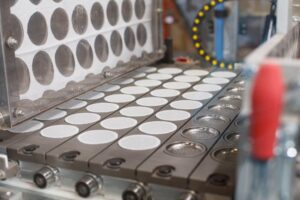
Beyers Koffie Group CEO Cory Bush on leading one of Belgium’s most historic and progressive coffee companies with a strategy and passion for sustainable production.
While many coffee professionals work their way through employment opportunities from the consuming end of the value chain to the producing end, United States-born Cory Bush has done the opposite.
“I started working with farmers directly, then worked my way through various exporters, importers, traders, and now I’m on the manufacturing side of things,” Bush tells Global Coffee Report. “It’s a tired joke I keep telling, but at this point one of the only last things I can do in the industry is work as a barista, which I actually think I would love to do.” Cory grew up in Washington, DC. He left in 2004 to follow his partner’s job in Tanzania, and tried to pursue a technology job. However, he quickly realised East Africa was “almost the last place in the world to get high-speed internet” and his plan would be tough to execute. Instead, a friend invited him to join international non-profit group TechnoServe, working towards doubling the income of 200,000 farmers across Ethiopia, Kenya, Rwanda, and Tanzania.
“We were working with communities to construct washing stations, create business structures, and accounting systems,” Bush says. “I was thrown into one of the deepest, richest parts of the industry – origin. It was a deep immersion with incredible people and locations. I feel really privileged to have had that opportunity.”
That experience, and many others along the supply chain, would become the catalyst to Beyers Group offering Bush the CEO position of its roasting division in 2022.
“I never thought I’d come to work every day at a factory, but I’ve always been interested in systems, manufacturing and processes, so to take the opportunity to be part of that in the context of coffee, is something I’m energised by and thrive on,” Bush says. “We may be a manufacturing business, but more than many other industries, our product is something really special in the minds of consumers. Coffee is more than a product on a shelf. Yes, we need to make a capsule that performs well and tastes good. You need to work with the variables of manufacturing to create that product. But there’s still this sense of romance and mystery that you don’t get with milk or tomatoes.”
Trust at the source
Founded in Antwerp in 1880, Beyers Koffie uses more than 140 years of expertise to roast coffee for third parties and private label businesses across Europe and the world, which these days accounts for almost 100 per cent of its business.
Beyers Koffie processes more than 22,000 tonnes of beans per year, and has an annual roasting capacity of about 35,000 tonnes, translating to about three billion cups of coffee each year. Three large commercial roasters operate 24 hours a day at its production facilities in Puurs-Sint-Amands in Belgium, halfway between the Port of Antwerp and the capital city Brussels.
“We’re the largest roaster in Belgium, and one of the largest in Western Europe, certainly in the private label space,” Bush says.
What makes Beyers Koffie unique, apart from its heritage, Bush says, is the company’s position as a wholly owned subsidiary of Sucafina. As one of the largest coffee traders in the world, Sucafina provides Beyers Koffie with the staff and capacity at ground-level to build “deep and thriving supply chains” for its customers.
“We can take a customer idea and create a product using Farmer Connect technology (an IBM-blockchain based end-to-end traceability platform), to trace all the critical environmental social concerns of the product, all the way back to the farmer on behalf of the retailer. We can then tell the story of the farmer and work to strengthen and improve the supply chain at the farm level, community level, and country level,” Bush says. “It creates this bi-directional flow of ideas and information between the end customer, and the farmer. There are not many companies, specifically within the private label world, that can do this in a real, credible way.”
At a personal level, Bush is passionate about sharing his interest in sustainability to improve the quality of Beyers Koffie products brought to market.
“As a company we want to grow, we want to succeed and there’s a tonne of different ways to do that. But for me, my first entry in the coffee world with TechnoServe was working on building sustainability at the farm level. This is an absolute driving passion of mine,” he says.
New pad and capsule production lines will help increase capacity by an additional 25 per cent.
“We’re in an industry where sustainability can mean many different things to many different people, and they’re all important. It’s really a matter of how do we transform and evolve our business to help ourselves grow, but by doing it responsibly? This is the challenge. How do we do better for our people, the environment, and for everyone in the supply chain? There’s a whole different set of concerns this side of the supply chain.”
Farm level sustainability is important, but efforts at the manufacturing level are equally as crucial. In 2021, Beyers Koffie launched a new brand identity with the motto, ‘Taking Coffee Further’. As such, Beyers Koffie has invested heavily to become a leading sustainable roaster by producing its own green electricity. It also uses energy-efficient roasters with heat recovery and compensates for all CO2 emissions generated via roasting.
Ensuring Beyers Koffie’s packaging is recyclable and compostable is an essential part of its sustainable effort. The roaster has converted its entire production of coffee pads to compostable polylactic acid (PLA) filter paper, made from 100 per cent natural materials, such as corn and/or sugar cane.
“We are one of the leading sustainable compatible pads producers in Europe. This has been very important to us over the years, and we’re seeing resilient demand because it’s one of the least expensive ways to consumer coffee on a per serve basis,” Bush says. “Nespresso compatible is also a very large product group for us. We still produce legacy products, and we’re producing more and more whole bean products as a result of shifting consumer trends.”
To account for expected growth, Beyers Koffie invested in new pad and capsule production lines in October 2022 to increase capacity by an additional 25 per cent. Bush says this is a considerable development, allowing Beyers Koffie to continue to capture market share and grow organically with existing clients.
Beyers Koffie has also shifted to mono materials, reduced foil thickness, and condensed its packaging sizes as much as possible. Bush says the company is constantly looking at new compostable materials, and is working within industry at a national level to enhance greater circular initiatives.
“The recycling industry isn’t making the investment, so we have private label producers and retailers, A-brands, and retailers working together to solve a problem. This is a great example where collaboration can be achieved,” he says.
“This has historically been one of the criticisms of single-serve – that not enough of it gets recycled. We really want to do what we can to boost the recycling rates. Sometimes this means that we as an industry need to make proactive investments, but that’s just something we think we need to do for to the health of our industry and our environment.”
Last year, Beyers Koffie launched fully home compostable Nespresso-compatible capsules. Bush anticipates uptake will start to accelerate as big brands launch their own compostable solutions this year and next. “It is exciting for us to continuously push the limits of technology in order to create coffee solutions that are good for people and planet,” Bush says.
“Today, there’s not one answer to making packaging more sustainable. There’s lots of potential answers. We continually test, check, evolve, and try new things. It’s really a question of making a handful of smart investments and seeing what pans out. In all cases, we’re a private label roaster that produces on a large scale. We will be doing the things that are required, and more than is required. When you produce on a scale such as we do, small changes have a big impact.”
One growing area of interest for Bush, is decarbonisation. The nature of coffee’s tropical- growing climate means it typically has a footprint when distributed to consuming countries, however, Bush says there’s still many packaging options that minimise the carbon footprint within supply chains.
“Decarbonisation touches on supply chain optimisation. Walmart in the US is a great example. It’s a global leader in sustainability. It cares about the environment, but it’s [using decarbonisation] because it helps their business become more efficient and save money as well. There’s a dual purpose. I think decarbonisation helps you solve inefficiencies across your business, whether it’s in transport, packaging, or how coffee is produced,” Bush says.
“We don’t have all the answers. What I realise is the coffee industry and manufacturing industry changes so fast. We have significant European Union legislation on packaging, recyclability, and circularity; new consumer demands, – COVID-19 changed the way people have been consuming coffee in recent years. Times have changed. The strategy is to integrate sustainability more into our operations and more into our product bases while continuing to be an efficient producer. But it’s not always easy.”
Beyers Koffie’s coffee pads are made of compostable polylactic acid filter paper.
Beyond customers looking for sustainable options, Bush says the needs of its private-label customers are split between value, quality, or somewhere in between.
“In general, you have the desire of retailers to be creating own-brand products that are as good or better than certain brands at a lower price. Many retailers have publicly stated goals of increasing their share of own-brand being sold in-store. It’s an interesting challenge and takes some skill,” he says.
“I think the retailers that will thrive in the long run are the ones that find a way to build brand trust and offer good quality and good value to customers. I don’t think it’s going to be the ones that offer the most expensive premium products, nor the ones that offer the cheapest.”
A strategy forward focus
Despite inflation remaining a tricky barrier, Bush says freight and logistic challenges have started to settle down, finally allowing the supply chain to take a breather. It’s with this open doorway that Beyers Koffie can be more strategic on its growth, looking ahead to geographical expansion in coming years.
“The war Ukraine on continental Europe and generational inflation were two gigantic changes last year, which I’d say were arguably more challenging than COVID-19 from a trading perspective because everything became unpredictable,” Bush says.
“But we think we absolutely have the scope to grow in a lot of different countries across Europe. Some of it we will do organically through our existing operations, some we will do by acquisition.”
Bush says the key for the Belgium roaster moving forward, will be a combination of innovation and evolution, while still respecting its tradition.
“Coffee is an industry which doesn’t stand still for any woman or man. We have to keep moving forward, the rate of change continues to only get faster. We’re still super proud of being a Belgian roaster with tradition, history, and values, which I think we’ve maintained over the years. They’re key to who we are, who we have been, and who we will be,” Bush says, citing the company values of being client centric, adaptable, efficient, entrepreneurial, and having expertise, integrity, and passion.
“I want everyone in the company to be passionate about what they do. This is key to anything. If you’re not passionate, then what do you have?”
This article was first published in the July/August 2023 edition of Global Coffee Report. Read more HERE.
The post Beyers Koffie Group CEO Cory Bush on his quest to become a leading sustainable roaster appeared first on Global Coffee Report.

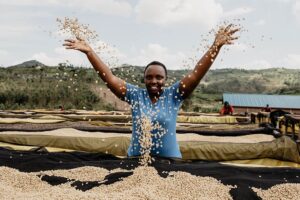
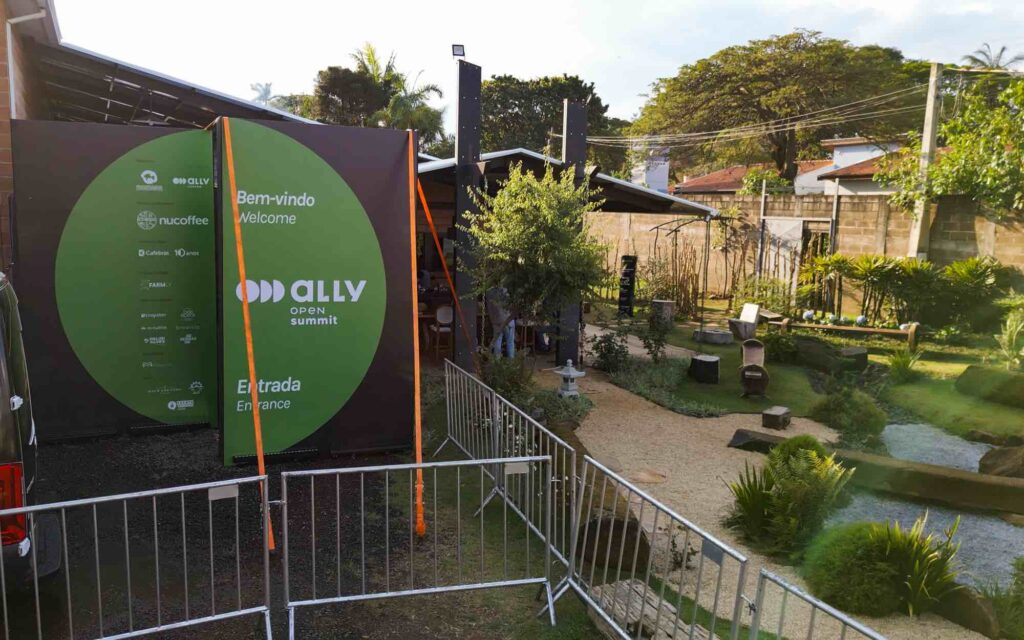
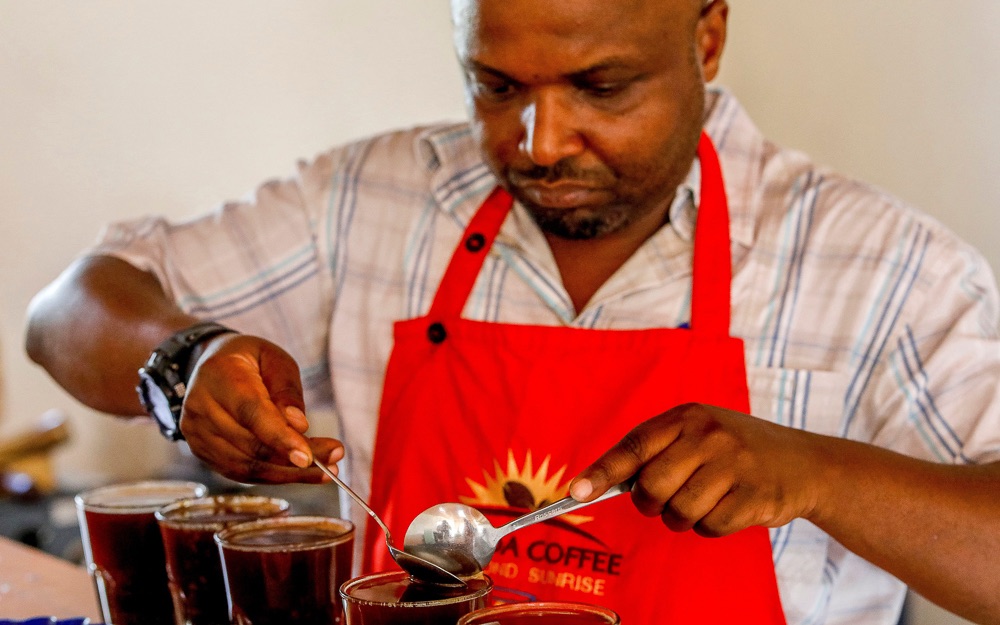
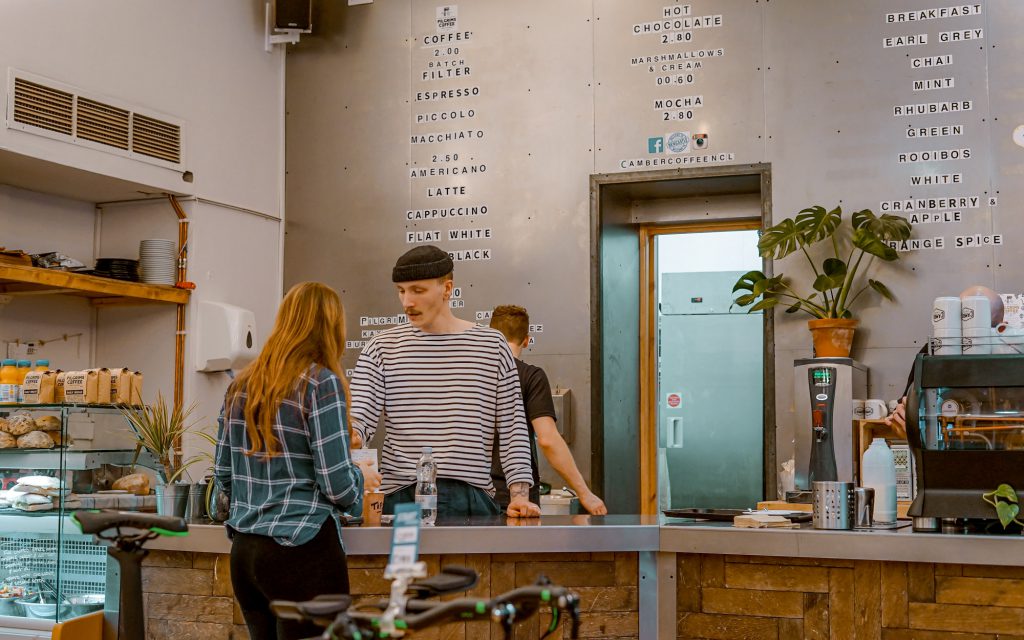
Responses